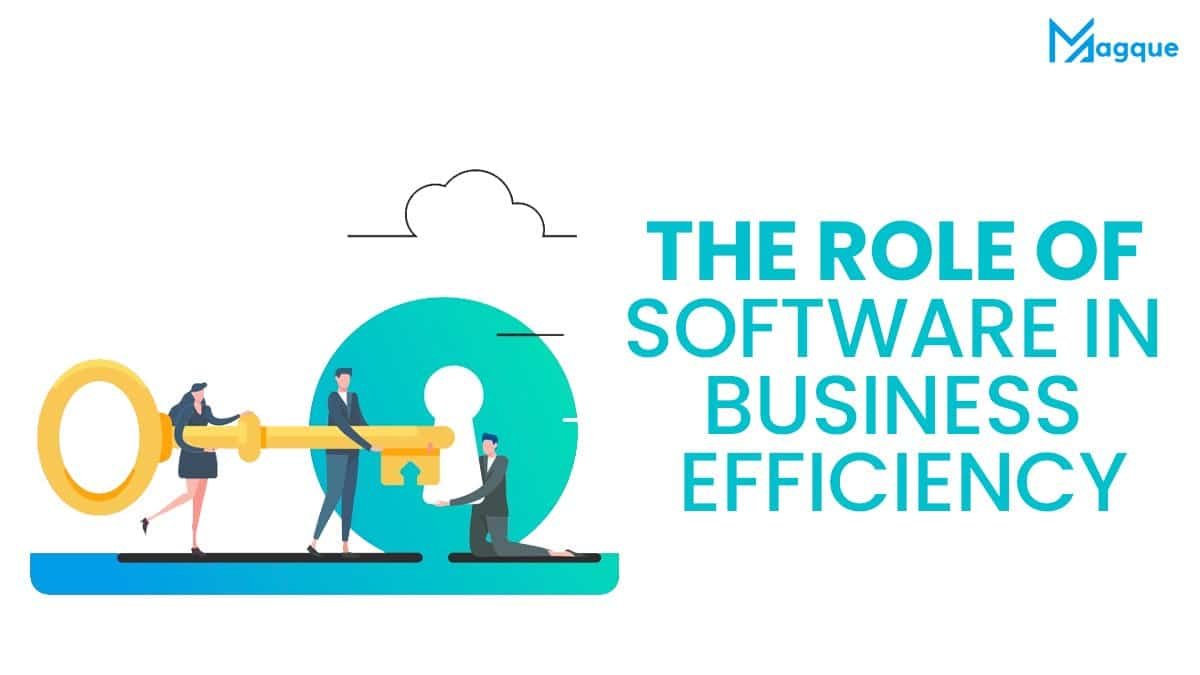In today’s fast-paced and highly competitive business landscape, efficiency is the name of the game. Every organization, whether small or large, strives to optimize its operations, reduce costs, and maximize productivity. And in this quest for efficiency, Business software has emerged as an indispensable tool that can make all the difference.
Streamlining Operations with Software
Imagine running a business without any software tools. Your employees would spend hours on manual tasks, data would be prone to errors, and communication among team members might be chaotic. This is where software steps in as a game-changer. It automates repetitive tasks, organizes data, and facilitates seamless communication.
With software solutions like project management tools, customer relationship management (CRM) systems, and accounting software, businesses can streamline their operations like never before. Project management tools help in task assignment and tracking, ensuring that projects are completed on time. CRM systems centralize customer information, making it easier to provide personalized services. Accounting software simplifies financial record-keeping and reporting, reducing the chances of errors.
Boosting Productivity
Efficiency and productivity go hand in hand, and software plays a pivotal role in boosting both. Take, for instance, the adoption of cloud-based collaboration tools. They enable employees to work together on documents in real-time, even miles apart. This not only saves time but also encourages collaboration and innovation.
Additionally, software tools can analyze large datasets in seconds, providing valuable insights to inform decision-making. Business intelligence software, for instance, can generate reports and visualizations that help businesses identify trends and opportunities. This data-driven approach empowers organizations to make informed decisions and swiftly adapt to changing market conditions.
Staying Ahead with Modern Technology
The business landscape is in a constant state of evolution. New technologies emerge, consumer preferences shift, and competition intensifies. To stay relevant and competitive, businesses must embrace modern technology, and software is at the forefront of this transformation.
The software empowers businesses to keep pace with evolving trends by adopting e-commerce platforms to expand online sales, implementing customer support chatbots to enhance customer service, or using artificial intelligence for predictive analytics. It allows them to remain agile and responsive to changing market dynamics.
Conclusion
In conclusion, the role of software in business efficiency must be balanced. It is a catalyst that streamlines operations, boosts productivity, and keeps businesses ahead in a rapidly changing world. As technology continues to advance, the integration of software into business processes will only become more critical. So, if you want your business to thrive and stay competitive, harness the power of software and watch your efficiency soar.
Are you ready to unlock the full potential of your business with software? In the comments below, let us know how you use technology to enhance your business efficiency!
And be sure to explore Magque, your go-to source for the latest and most intriguing updates in the realms of informative tips & reviews!
FAQs
Q1. What is the role of software in improving business efficiency?
Software plays a crucial role in business efficiency by automating tasks, streamlining operations, and enhancing productivity. It helps businesses save time, reduce errors, and make data-driven decisions.
Q2. What types of software are commonly used to boost business efficiency?
Commonly used software includes project management tools, CRM systems, accounting software, collaboration platforms, and business intelligence tools. These solutions cater to various aspects of a business, from project management to customer relationship management.
Q3. How can software enhance employee productivity?
Software can enhance employee productivity by providing efficient communication, task management, and data analysis tools. Collaboration software, for example, allows teams to work together seamlessly, while analytics tools help employees make informed decisions quickly.
Q4. Is software customization necessary for my business’s unique needs?
Customization depends on your specific business requirements. While many off-the-shelf software solutions are available, customization may be necessary to align the software with your unique processes and goals. Customized software can provide a competitive edge.
Q5. What are the security considerations when using software for business efficiency?
Security is paramount when using software in business. Choosing reputable software vendors, keeping software updated with security patches, and implementing access controls to protect sensitive data are essential. Regular cybersecurity assessments are also advisable to identify and address vulnerabilities.
Read Also This:- Trends in Software Development













